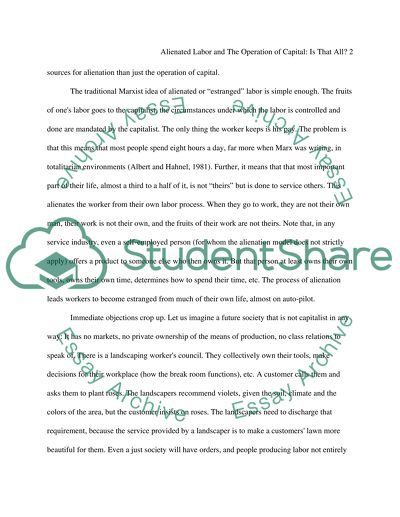Cite this document
(“Alienated Labor and The Operation of Capital: Is That All Essay”, n.d.)
Retrieved from https://studentshare.org/environmental-studies/1409835-analytical-essay
Retrieved from https://studentshare.org/environmental-studies/1409835-analytical-essay
(Alienated Labor and The Operation of Capital: Is That All Essay)
https://studentshare.org/environmental-studies/1409835-analytical-essay.
https://studentshare.org/environmental-studies/1409835-analytical-essay.
“Alienated Labor and The Operation of Capital: Is That All Essay”, n.d. https://studentshare.org/environmental-studies/1409835-analytical-essay.


